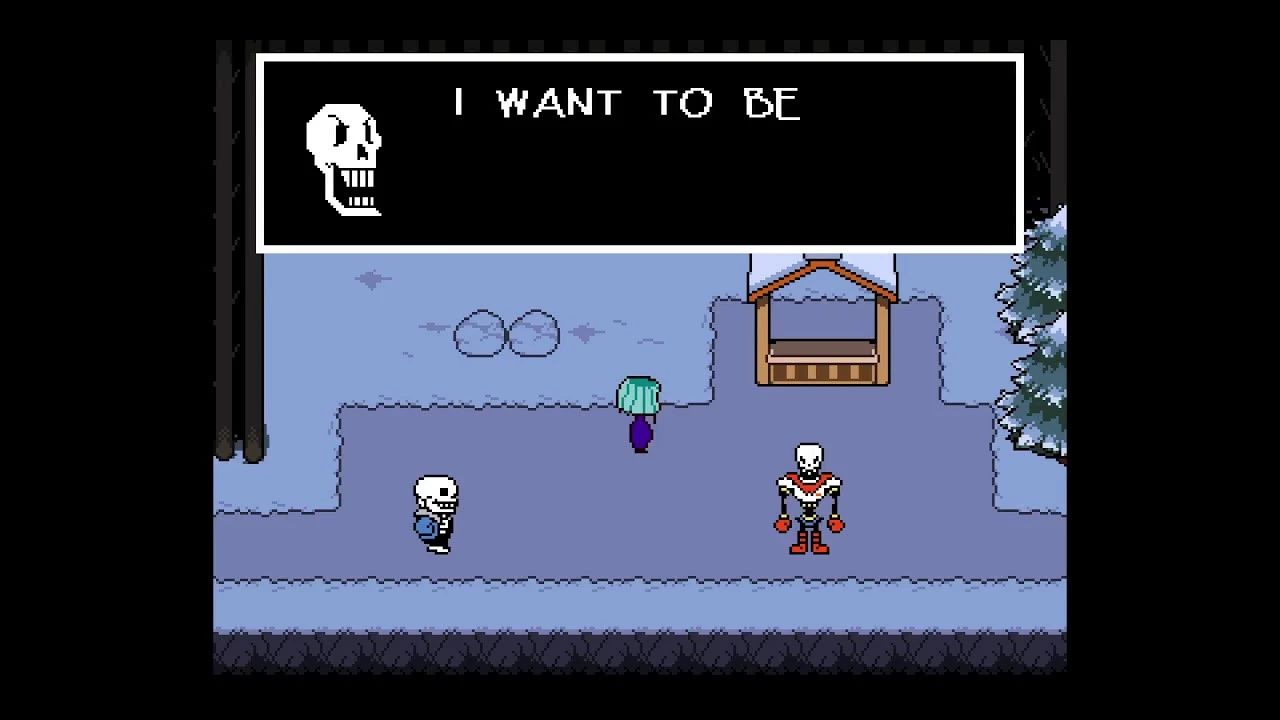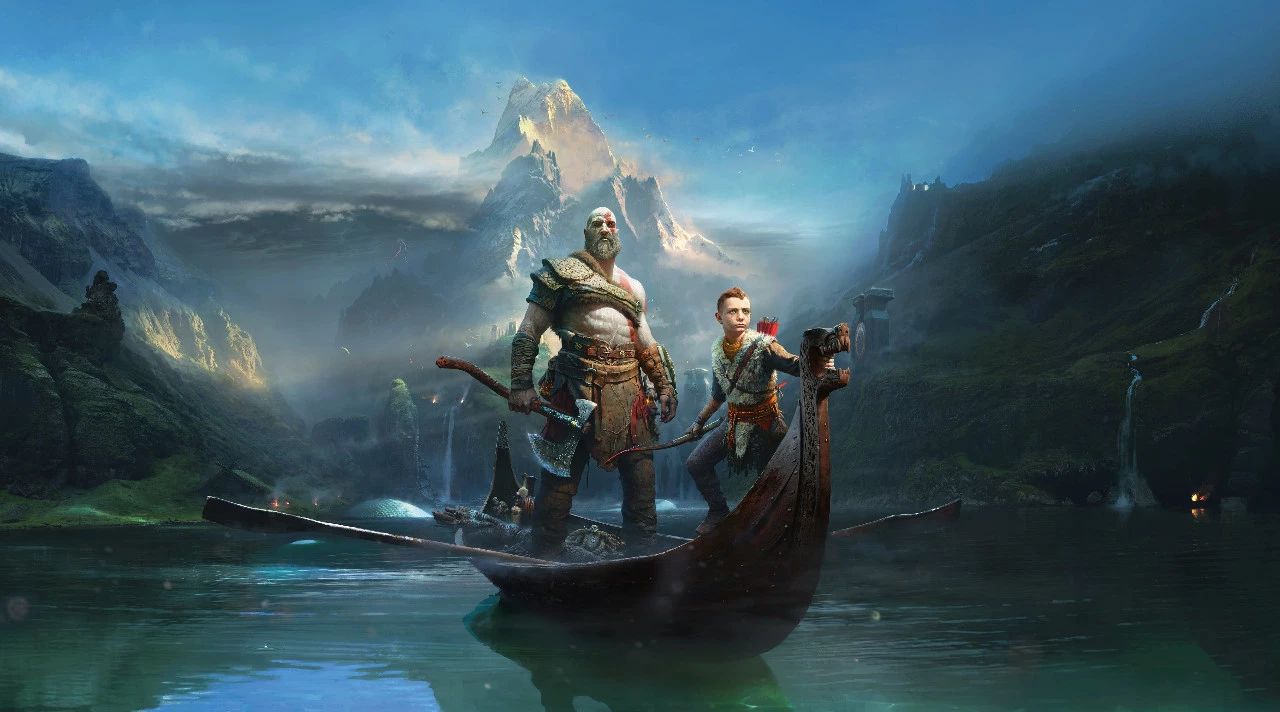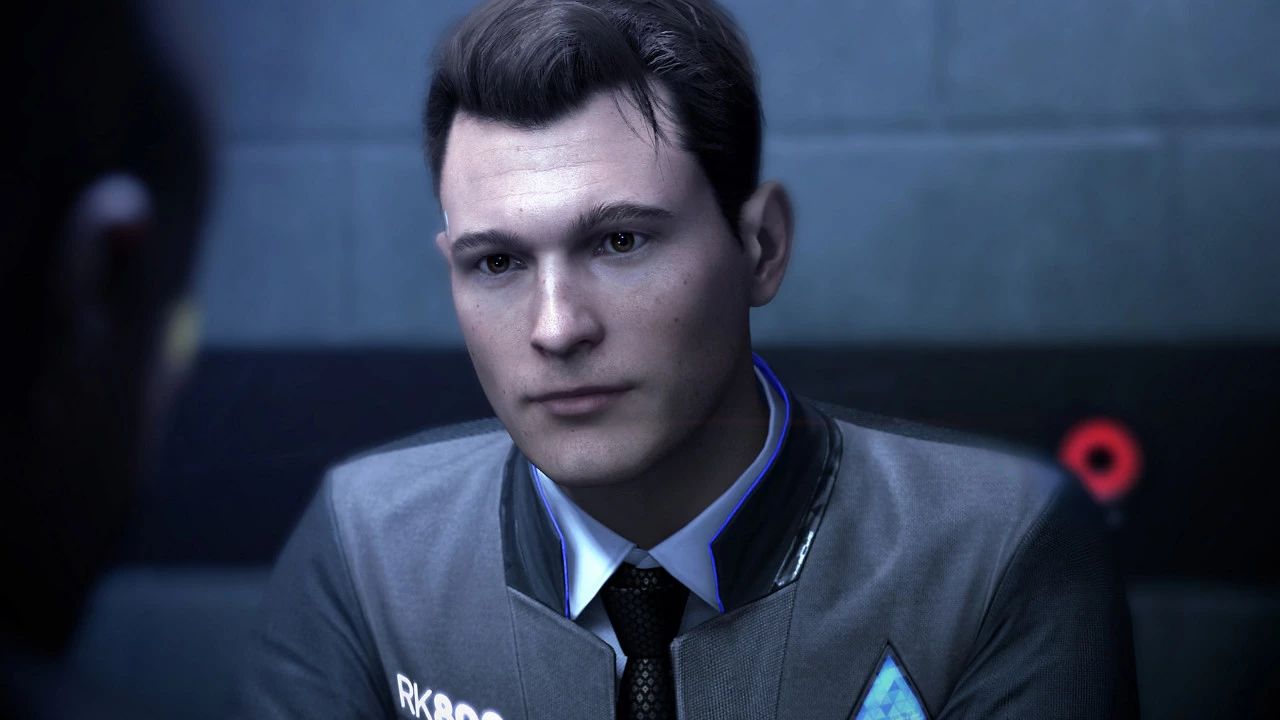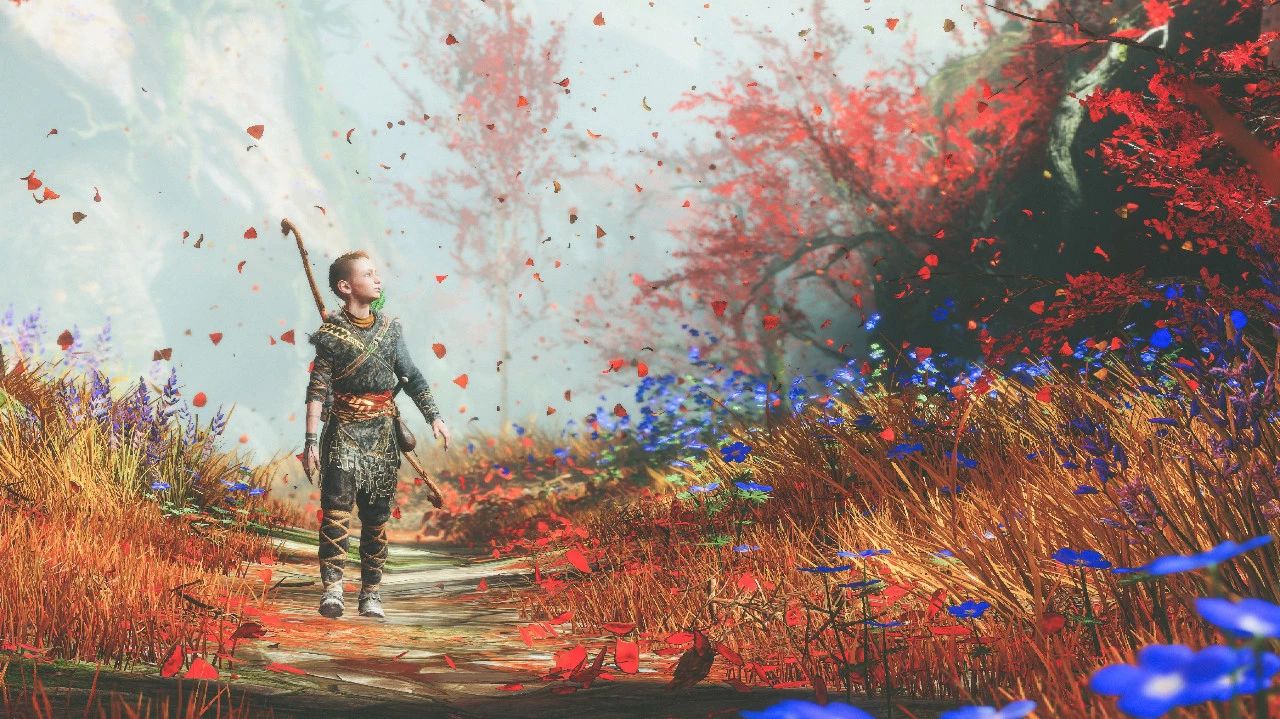Six Games That Made Me Rethink Life
November 24, 2019
A personal journey through six video games that changed how I see art, empathy, and life itself.
“Don’t be sorry. Be better.”
— Kratos, God of War
What is art?
Here’s an orchestral and vocal performance I downloaded from the internet—you can listen to it.
The soft yet rich female voice, the ethereal harmonies, the violin’s warning and foreboding, and the cello’s gentle main melody.
Quietly feeling it, it’s as if it’s telling the sadness a composer once felt. Then, in the latter half, the ensemble grows stronger, and the soprano takes the lead, as if expressing reluctance for the past and hope for the future.
Truly, after listening to this piece, take a quiet moment to savor it, and then read on.
We can all agree—this is art, right?
Now look at this scanned oil painting. You can feel the artist’s choice of colors—the pale red leaves paired with bluish-purple flowers, the side lighting, and that little path… where does it lead?
We can all agree—this is art, right?
What if I tell you they are both from the same video game?
People often think games are just a waste of time, mere entertainment. But I believe that, like oil paintings, operas, and classical music, games are a form of art.
More precisely, I think games are an art form that transcends any single medium. Orchestral music in a game exists to shape the atmosphere in the background; photorealistic 3D models, like oil paintings, exist to tell a story; character dialogue and plot developments are no less compelling than bestselling novels. But beyond merging these mediums, games offer something none of them can: they allow the audience to decide the direction and development of the characters.
Like all art, this form of transcendent art can refine one’s temperament—sometimes offering catharsis, sometimes evoking sadness and regret. Some games can even make people reflect on life.
Of course, as with novels, there are good games and bad ones. Here I’ve compiled six games that made me rethink life. If you’ve never played games, or if you’re biased against them, I think you should try the ones below.
The Legend of Zelda: Breath of the Wild
I think this entire game exists to tell the player one thing: stay curious.
When I first played it, I was disappointed. In life, in school, and even in games, we’re used to following orders: finish this assignment, go to this place, complete this test. So when I entered Zelda’s world, I was lost. The quest instructions were unclear. I didn’t know how to get there, what I was supposed to do, or where I should go.
So I put the game down. Over half a year later, on a flight back from the U.S., I opened it again. I still didn’t know how to reach the first Divine Beast quest marker.
“Well… why don’t I just wander around?”
That wandering became unstoppable. A river ahead—I wondered what was on the other side, so I swam across catching fish. There was a shrine nearby, so I went in to solve its puzzles. I saw a mountain and wanted to know what was on top, so I climbed it. From the summit, gazing out over the land brought a swell of satisfaction. Then I glided down and spotted a monster camp—fought them to the death. Before I knew it, I had reached the quest location.
This game created a vast world for you to explore. You can forget the main quest entirely, because wherever you go, you’ll find something interesting to do. You just need to stay curious about everything around you. What’s in the forest? What’s at the top of this tall tree? Fireworks in the distance—what’s under them? A monster camp or a town?
Playing it took me back to my childhood self—the one who could spend an entire afternoon watching ants, sneak off to explore “secret passages” at school, and stay curious about everything.
After playing, my way of seeing the world changed. I started noticing the details I used to see as a child but ignored as an adult. I became curious about everything around me again.
This game brought back my old self.
Now, I’ve finished all the main quests, and my save is paused at the gate to the final boss.
But I don’t want to kill it. Because killing it would truly “finish” the game.
And I don’t want to finish it. I can’t bear to let it go.
Battlefield 1
There are countless war-themed games, films, and novels—from absurd anti-Japanese war dramas to Hollywood WWII blockbusters, from anti-fascist novels to history textbooks. These shaped my understanding of war. Yes, I knew war was terrifying, tragic, and cruel.
But I never really knew war.
Because in all those media, I relied on my imagination and cold statistics. I had never been on a battlefield—how could I claim to understand war?
This game gave me a completely different perspective. The first time you start it, you’re thrown straight into the WWI battlefield with a rifle in hand. Just as you’re about to fight bravely—you die. The screen goes black, and a single line appears:
“Julius Beaufort” — presumably the infantryman I had just played. Before I could think about who he was, I became a machine gunner. Surely I’d last longer with such firepower? Less than two minutes later, I died again. Another black screen, another name and birth–death dates.
I became a tank operator, then a sniper. Each time, my character died. Each time, another name appeared.
It may not sound like much described in words, but when you’re controlling the character yourself—every attempt to fight back cut short, name after name appearing, all with the same year of death—it’s deeply shocking.
And that’s just the prologue. The whole game tells the stories of five ordinary, very different soldiers. No drawn-out nostalgia, no romanticizing—just showing you that slice of their lives during the war. When I finished, I was stunned. For the first time, I truly understood war’s sorrow.
Undertale
If Battlefield 1 made me understand war’s sadness, Undertale wanted to teach me the meaning of love.
Aside from Plants vs. Zombies, this is the only game I’ve played twice.
It’s a very lighthearted, joyful game. I won’t say much because too much would spoil it. If the first two games demand powerful hardware, Undertale’s simple 2D art won’t be a problem.
I recommend it because it made me rethink why we do anything at all. You’ll understand after playing. On the entertainment side, it gave me immense joy—a fun story with very vivid, well-rounded characters. My WeChat public account avatar is actually my favorite character from Undertale.
Antichamber
In front of you are two staircases—one red, one blue. Which way do you go?
If you take red, you go up one floor… and face the same fork again: red or blue stairs.
If you take blue, the same thing happens.
What do you do?
Thinking differently is the essence of this puzzle game. You have to think counterintuitively, critically. Only when you step outside your usual mental framework can you finish it.
I’m glad I played it in the summer after my third year of middle school—it taught me to examine my own thought process. Whenever I face a problem, I now ask: what’s limiting my thinking? Is there a better solution? Is there something others haven’t noticed?
God of War
Before this, I thought Zelda was the best game I’d ever played.
Now I think God of War is.
Despite the title, it has little to do with wars between nations. It’s about a retired father adventuring with his son.
That oil painting I mentioned earlier? It’s actually just a screenshot from this game. That orchestral piece? It’s the main menu music. That should tell you the game’s level of artistry.
It masterfully blends dialogue, visuals, and music into a beautiful story. Perfectly balancing gameplay and narrative, it features fully fleshed-out characters who will make you laugh and cry.
It made me reevaluate what games can do—both in sensory and emotional impact. This will surely become a classic.
It also has a rich literary foundation. You’ll notice it most if you’ve read Norse mythology. I spent a couple of weeks in high school reading all the major myths, so when I played a year later, I was thrilled. The game condenses three or four myth arcs into one, with altered events but the same endings.
From the World Serpent to Jötunheimr, the entire backdrop comes straight from Norse myth. Playing felt like watching Ready Player One and catching every Easter egg—especially the ending.
I strongly recommend reading Norse myths before playing—at least Thor, Loki, and Balder’s stories. It will deepen your understanding and amplify the impact.
Detroit: Become Human
Last summer, I took a summer school course at CMU called “Global History: Civil Rights Movements.” We studied the U.S. civil rights movement and how events worldwide influenced it.
We read many works by movement leaders like Martin Luther King Jr., describing minority struggles and the fight for rights. While I could sense the activists’ determination, I couldn’t fully empathize. No matter how much I read—news articles or later scholarly analyses—I could only imagine the scenes as an outsider. I couldn’t feel what it was like to fight for the most basic rights.
After the course, Detroit: Become Human gave me that feeling.
In the game, you are an android. As the title suggests, your goal is to become human. There’s no adrenaline-pumping combat or high-speed gunfights—just simple choices. But every choice affects the future.
From choosing violent or peaceful protest, confronting or backing down from police, obeying humans or shooting an injured comrade—each choice must be made in an instant. The immersive narrative and tense decision-making put you in the middle of a virtual android revolution.
You play three roles: an android revolutionary leader, an android police investigator, and an ordinary android. You see the uprising from the perspectives of protesters, police, and civilians—understanding the rebels’ struggles and the investigator’s burdens. Such multifaceted storytelling is rare today.
One scene sticks with me: during a robot protest, a human police officer pointed a gun at us. I chose to raise my hands, showing we were harmless—and the image that followed felt eerily familiar.
In short, this game shocked me. After playing, I could better understand the difficulty and weight of decisions during the U.S. civil rights movement—from rebel, police, and civilian viewpoints. The sense of presence, of making those choices yourself, is something no text can convey.
In conclusion
These are the six games I believe everyone should play in their lifetime.
Games, like any literary or artistic medium, can change your worldview and make you rethink life.
I hope they inspire you.
















